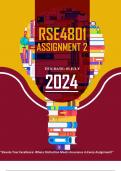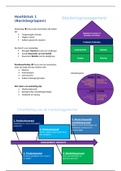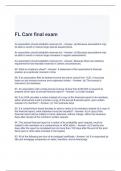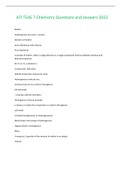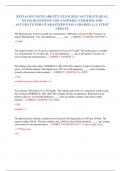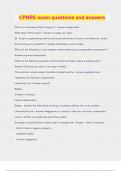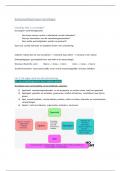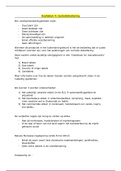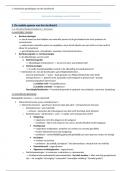Other
RSE4801 ASSIGNMENT 2 - 2024 (705037)
- Institution
- University Of South Africa (Unisa)
RSE4801 ASSIGNMENT 02: 2024 UNIQUE NO: 705037 DUE DATE: 03 JULY 2024 Write an academic essay that includes the following: • Background on the problem of learner apathy/alienation (400 words); • A problem statement (100 words); • An explanation on how the problem will be inve...
[Show more]
